Alabama Special Election Interview Driving Vote Again
The presidential race gets most of the attention. But Alabama voters will also elect a U.S. senator, local U.S. representatives and the president of the Public Service Commission on Tuesday. Beneath, a guide to the candidates.
United states Senate: Doug Jones vs. Tommy Tuberville
Alabama political commentators take long held that all a person needed to get elected was an R next to their name. The state'south U.S. Senate race will be a near-perfect test of that hypothesis.
Republican nominee Tommy Tuberville has largely avoided campaigning. The sometime Auburn football game coach has made express public appearances; declined interviews with all merely a handful of conservative radio talk shows, and focused on social conservative issues (peculiarly abortion) with little if any mention of specific Alabama topics. Tuberville has chiefly reached out to GOP voters, a strategy that has worked earlier in Alabama.
By contrast, Democratic incumbent Doug Jones has tried to focus most entirely on Alabama. The U.S. senator has campaigned effectually the land and focused on state issues — specifically, the response to COVID-19 and health care issues in the country -- in the hopes of putting together a broad coalition on Election Day.
The public polls of the race suggest Tuberville's approach is winning, with the former coach property double-digit leads over Jones. But the incumbent has outspent Tuberville almost four-to-1 and has been trying to make inroads with traditional Republican constituencies, like white suburbanites and rural voters exterior the Black Chugalug. Information technology'due south part of an effort to practise something no Democrat in Alabama has washed since 2006: win re-election in a statewide race.
SUBSCRIBER Exclusive:Every bit Tommy Tuberville pitches to Republican base of operations, Doug Jones tries to assemble a coalition
Doug Jones (incumbent)
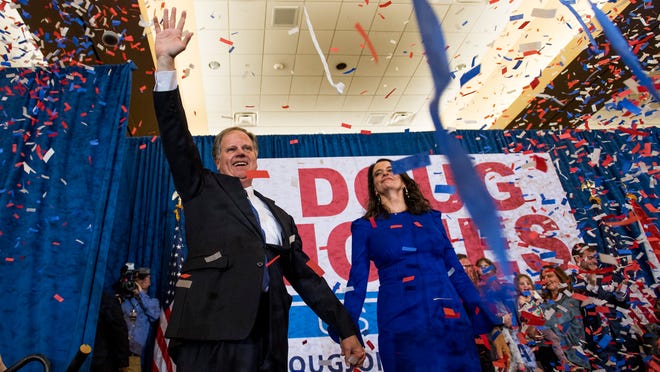
Historic period: 66
Residence: Birmingham
Profession: Attorney
Education: B.S., Political Scientific discipline, University of Alabama, 1976; J.D., Cumberland School of Constabulary, 1979
Party: Autonomous
Offices held/offices sought: U.Southward. Attorney, Northern Commune of Alabama, 1997-2001; U.S. senator, 2017-present
Campaign finance: Through October. 14, Jones had raised $26.7 1000000 and spent $24.9 million. He had $4 million on manus.
How he got here: Jones won a special election for the U.S. Senate in 2017. He did non face any main challengers this year.
Tommy Tuberville
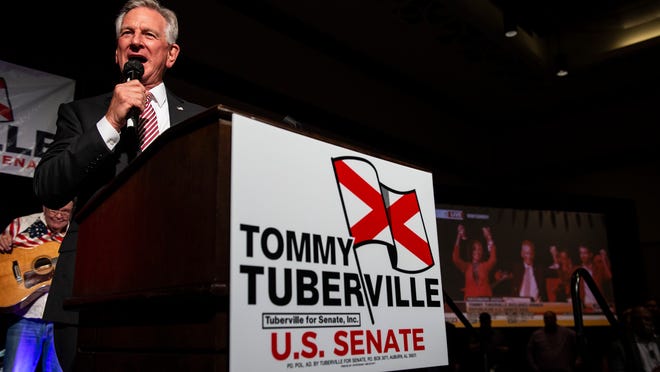
Age: 66
Residence: Auburn
Profession: Higher football game coach
Educational activity: B.S., Physical Didactics, Southern Arkansas University, 1976
Party: Republican
Offices held/offices sought: Kickoff run for public office
Entrada finance: Through October. 14, Tuberville had raised $8.two meg and spent $half-dozen.7 million. He had $1.v million on hand.
How he got here: Tuberville finished get-go in the Republican primary for the Senate seat on March 3. He defeated erstwhile U.S. Attorney General Jeff Sessions (who represented Alabama in the Senate from 1997 to 2017) in the July 14th runoff.
Issues:
COVID-xix: Jones pushed hard for a second COVID-19 relief package throughout the summertime and criticized Senate Majority Leader Mitch McConnell, R-Kentucky, for stalling on an aid parcel. The senator said he wanted an help package to include an extension of a $600-a-week supplement for unemployment; hazard pay for responders and assist to state and local government to state jobs. Jones voted against a bill McConnell finally advanced which included neither of those things. He has praised Gov. Kay Ivey, a Republican, and other state officials for their handling of the pandemic, particularly the mask mandate Ivey put into result in July.
Tuberville, who did not respond to questions on the result, said he opposed an extension of the $600 unemployment supplement and has expressed religion in President Donald Trump's ability to handle the virus, which killed 227,000 Americans through Oct. 28.
More:Where Doug Jones, Tommy Tuberville stand on addressing the COVID-19 outbreak
Wellness care: Jones has highlighted his back up for the Affordable Care Human action in his campaign and warned about threats to the law from a case the U.S. Supreme Court should hear on November. 10. He has also urged the state to opt into the expansion of Medicaid offered under the act. Jones has sponsored bills that would provide a 100% match for expansion for 3 years, every bit the federal government offered in the first years of the program. The senator has expressed cautious support for a public option under the ACA, in which uninsured individuals would have the pick to buy into a public health programme.
Tuberville, who did not respond to questions on the topic, calls the ACA a "failed experiment." Tuberville's entrada website says he wants to repeal the police while allowing people with pre-existing weather condition to get wellness insurance. The candidate has non provided whatever explanation of how he would practice that.
More:Where Alabama Senator Doug Jones, challenger Tommy Tuberville stand on wellness care
Climate change: Jones supports federal aid to the Alabama declension to upgrade roads and protections for the surface area against the threat of climatic change, and assistance to farmers to adjust to it. The senator supports a return to the Paris Climate Agreement, a broad but non-bounden framework to address carbon emissions in the globe. Jones voted confronting the Green New Deal, a wide phone call for a national mobilization against climatic change that embraces cuts to emissions, infrastructure upgrades and task creation.
Tuberville, who did non reply to questions on the topic, told the Daily Mountain Eagle in 2019 that "at that place is one person who changes the climate in this country and that is God." He also expressed skepticism about climate change while accusing China of driving it.
More than:Where Alabama U.S. Senate candidates Doug Jones, Tommy Tuberville stand up on climate change
Abortion: Jones supports abortion rights. He opposes late-term abortions (a rare procedure) except when the life of the mother is at risk, has voted for appropriations bills that include the Hyde Amendment, which bans the use of public coin to fund abortions. The senator says he does non support changes to the Hyde Subpoena. To reduce abortions, Jones supports making contraception more accessible and available, improving admission to health care and making it easier to adopt children or take them into foster care.
Tuberville, who did not respond to questions on the topic, is anti-abortion and has highlighted his stand in his ads. He said in 2019 he was "all for" an Alabama law that banned abortion in all non-medical emergency situations, including when a woman is the victim of a sexual assault. Tuberville has falsely accused Jones of supporting abortion up to birth. Jones just supports those when a woman's life is in danger.
Guns: Jones broadly supports electric current laws. The senator said he would back up raising the minimum historic period for "certain semi-automatic weapons" to 21, though he opposes doing so for other firearms. Jones likewise said he wanted to close existing loopholes in background checks to improve the organisation and strengthen existing bans on gun ownership for domestic abusers. Jones as well wrote that he supported ruby-red flag laws as a mode to bring downwards the land's high rate of deaths from firearms.
Tuberville, who did not respond to questions on the topic, told the Daily Mount Eagle in 2019 he is "not for any class or fashion of gun control."
More:Where Alabama Senate candidates Doug Jones, Tommy Tuberville stand on abortion, gun rights
Poverty: Jones said he supports a broad approach to tackling Alabama's high poverty rates, including economic evolution, access to wellness insurance (particularly through Medicaid expansion) and increased spending on education. The senator as well wrote he would support a "graduated and possibly geographical" increase in the federal minimum wage, though he did not say what level he could live with.
Tuberville, who did non answer to questions on the topic, has said he is in favor of bringing jobs to the state.
More:Where Doug Jones, Tommy Tuberville stand on addressing poverty in Alabama U.South. Senate race
Alabama 2d Congressional District: Barry Moore vs. Phyllis Harvey-Hall
Ane can't say voters in the 2nd Congressional District will lack choices. The two candidates are emphasizing two very different sets of bug in the lead-up to the election in the district, a Republican stronghold for decades.
Alabama's 2nd Congressional District encompasses parts of Montgomery; Autauga and Elmore counties, and the Wiregrass. The Melt Political Report rates the district R+16. It has sent one Democrat to Congress in the concluding 50 years.
The seat is currently held by U.South. Rep. Martha Roby, R-Montgomery, who chose not to seek re-ballot.
Phyllis Harvey-Hall
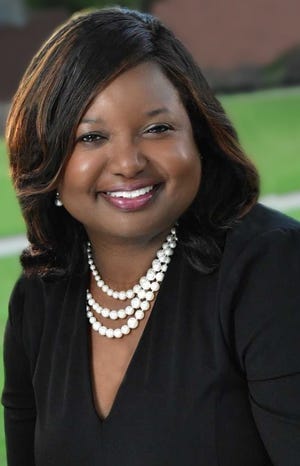
Age: 57
Residence: Montgomery
Profession: Education consultant
Educational activity: B.S., Education, Alabama Country University, 1983; M.S., Education, Auburn University Montgomery, 1995; Masters of Education and Leadership Assistants, Auburn University Montgomery, 1997
Party: Autonomous
Offices held/offices sought: Montgomery City Council candidate, 2015 and 2019; Montgomery County Lath of Instruction candidate, 2016
Campaign finance: Through Oct. xiv, Harvey-Hall raised $l,166 and spent $46,741.xv. She finished with $3,364 on hand.
How she got here: Harvey-Hall won the Autonomous primary for the seat on March 3, defeating Nathan Mathis, a farmer and erstwhile country legislator.
More:Phyllis Harvey-Hall focuses on education, development in Alabama congressional seat race
Bug: Harvey-Hall said she wants to focus on infrastructure in the district, specially extending broadband by securing grants to help communities in southeast Alabama. Harvey-Hall also said she wanted to find ways to secure federal money that could supplement teachers' salaries in schools throughout the district.
"When you travel this commune and look at towns like Eufala, Ozark — these towns demand investment and infrastructure, and doing everything we can to bring industry back," she said.
Harvey-Hall also said she wanted to work to go along rural hospitals open in the district and aggrandize access to health intendance. She supports a public option for the Affordable Care Act, improvements to medical care provided past the Veterans Administration, and a $12-an-60 minutes minimum wage.
Barry Moore
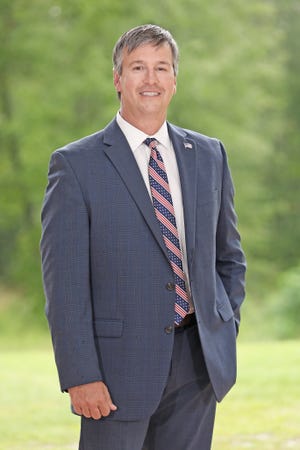
Historic period: 54
Residence: Enterprise
Profession: Owner, Barry Moore Industries
Education: A.South., Enterprise Country Junior College, 1988; B.S., Agronomical Science, Auburn University, 1992.
Party: Republican
Offices held/offices sought: Alabama House of Representatives, 2010-18; Republican candidate for 2d Congressional District, 2018.
Entrada finance: Through Oct. 14, Moore had raised $711,172 and spent $714,465. His campaign reported a deficit of only under $iii,300.
How he got here: Moore finished second in the Republican principal for the seat on March iii. He defeated Jeff Coleman, a moving business organisation possessor, in the GOP runoff on July xiv.
More:Barry Moore hit veteran status in congressional run
Bug: Moore has emphasized national issues in his entrada, particularly his support for President Donald Trump. He supports the president's immigration policies and the United states of america-Mexico-Canada Agreement (USMCA), a successor to the North American Costless Trade Understanding. Moore also said he wants to work to promote "police and club" in the country, and emphasizes a socially conservative calendar, with opposition to abortion and support for gun rights.
Moore besides said he wants to aggrandize trade opportunities for farmers in the district, and to protect Maxwell Gunter Air Forcefulness Base of operations in Montgomery and Fort Rucker exterior of Enterprise, and said he believed the personnel at the bases give the commune opportunities to bring in aviation companies, such equally
"I think it's proven nosotros can provide the workforce for that," Moore said.
Public Service Commission President: Laura Casey vs. Twinkle Andress Cavanaugh
The PSC President presides over meetings of the country'south utility regulatory body. The PSC has get mostly toothless in recent years, thanks to legislation stripping them of previous powers and a almost four-decade former method of determining electricity rates known as RSE that guarantees utilities a certain return on their investments.
More than:'Transparency' vs. 'fight off liberals': Alabama Public Service Commission candidates clash over priorities
Laura Casey
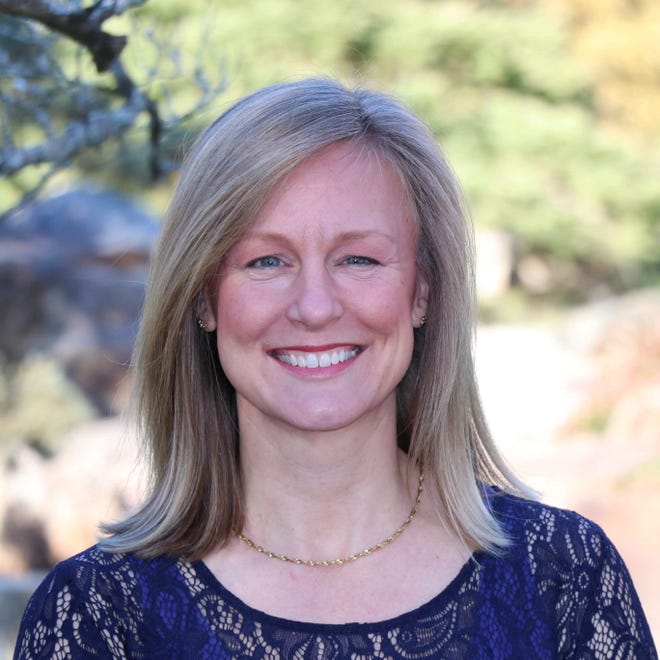
Age: 49
Profession: Retired attorney, actuary
Residence:Birmingham
Educational activity: B.S., Actuarial Mathematics, Academy of Michigan, 1993; J.D., Rutgers Academy School of Law, 2001.
Offices held/offices sought: Democratic candidate for Alabama Senate, 2018.
Entrada finance: Betwixt Jan. 1 and October. i, Casey raised $487 and spent $662. She had $ii,363 on mitt as of Oct. 23.
How she got hither: Casey defeated Robert Mardis in the March 3 Democratic master.
Issues: Casey wants to encourage the development of culling energy sources, and has criticized the PSC for allowing Alabama Power to charge a fee for the installation of rooftop solar, which critics say has bedridden the growth of the solar industry in Alabama. Casey has too criticized the electric current RSE, maxim it does not provide plenty data to the public about how electric rates are set.
Twinkle Andress Cavanaugh (incumbent)
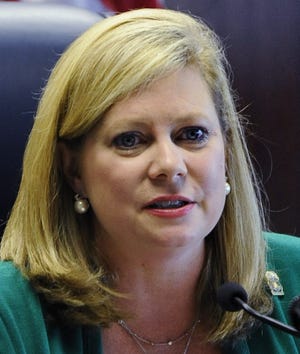
Age: 54
Residence:Montgomery
Profession: Concern owner/government official
Educational activity: B.S., Biology and Secondary Education, Auburn University, 1989
Offices held/offices sought: Republican nominee for Public Service Commission president, 2008; Commissioner, Public Service Commission, 2010-12; President, Public Service Commission, 2012-present; Republican candidate for lieutenant governor, 2018.
Finances: Cavanaugh raised $282,026 between January. 1 and Oct. 25. She spent $237,471 and had $63,665 on hand equally of Oct. 23.
How she got here: Cavanaugh defeated Robin Litaker in the Republican primary on March iii.
Problems: Equally in previous campaigns, Cavanaugh has mixed defenses of current PSC policies with tangential attacks on national figures in the Autonomous Party. She has name-dropped U.S. Rep. Alexandria Ocasio-Cortez of New York and Sen. Bernie Sanders of Vermont in attacking efforts to accost climate change, such as the Green New Bargain. Cavanaugh has defended the solar fee, proverb other Alabama Power customers should non have to "subsidize" solar panel users. She as well says the current rate procedure allows for stability and economic development.
Contact Montgomery Advertiser reporter Brian Lyman at 334-240-0185 or blyman@gannett.com.
Source: https://www.montgomeryadvertiser.com/story/news/2020/11/01/alabama-2020-election-voters-guide-candidates-top-races/6047879002/
0 Response to "Alabama Special Election Interview Driving Vote Again"
Post a Comment